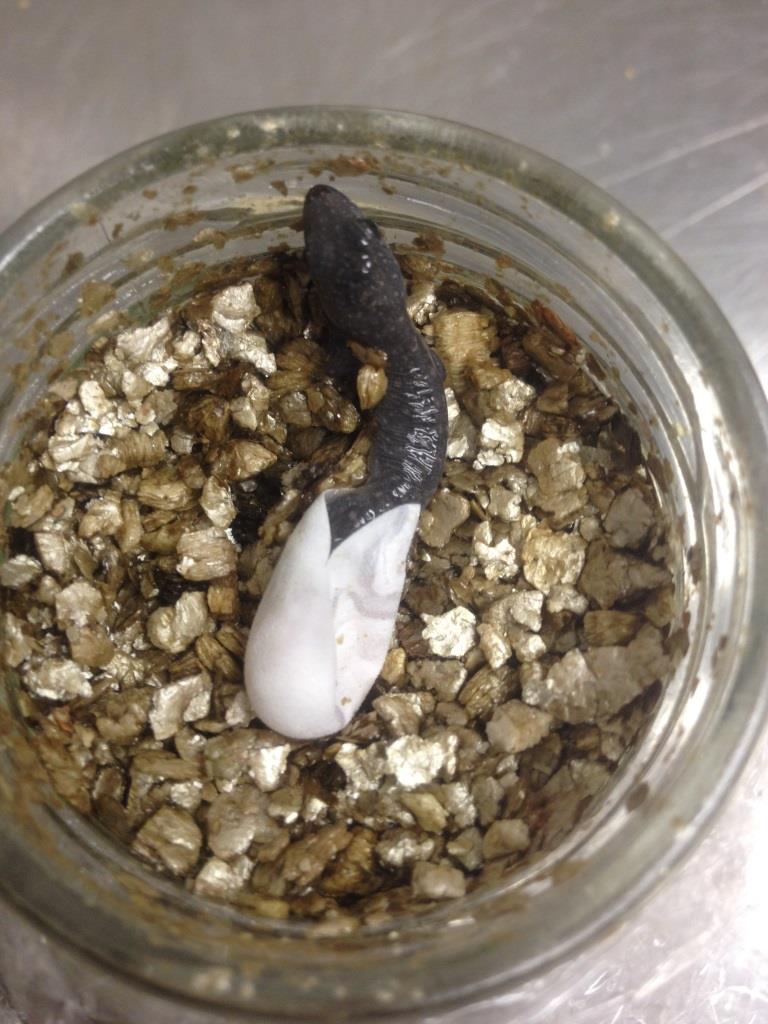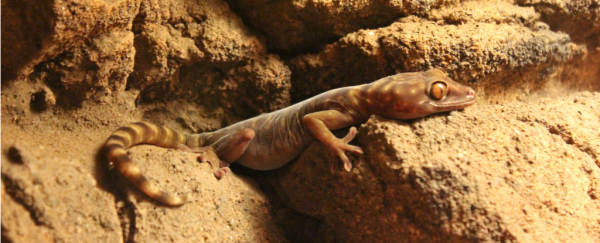Geckos probably aren't the first species you're worried about when it comes to climate change. Those hardy little lizards have adapted to live in warm climates, and their Spiderman-like feet are so awesome, we've been trying to copy them for years.
But new research from University of Technology Sydney in Australia has put a dampener on the assumption that geckos will survive the constantly rising temperatures. Turns out, even the hardiest of geckos - such as the rock-dwelling velvet gecko (Oedura lesueurii), which can survive months without food or water - could suffer when the climate heats up.
The researchers looked at the hatching rates of baby velvet geckos when exposed to different temperatures. They found that when incubation temperatures were hotter than the geckos were used to, there were smaller hatchlings and lower survival rates than those incubated at their regular nesting temperatures.

The team looked at a temperature increase of 3.8 degrees Celsius, and found that the baby geckos struggled under these conditions. That's a big problem because in Australia, minimum temperatures have already risen 1.1 degrees Celsius since records began in 1910, so a 4 degree increase isn't too far out of the realm of possibility.
"It's a fairly bleak scenario. If air temperatures increase by 3 degrees Celsius, or we get longer heat waves in summer, velvet geckos might disappear from some areas," said one of the researchers, Jonathan Webb. "When we ran population viability models, we found that populations with low survival, as might occur if nests get hotter, go extinct."
The reason that these species might be more vulnerable to climate change is due to their egg laying habits. "Females don't dig nests in soil like most lizards do, so compared to other lizard nests, velvet gecko nests are more sensitive to changes in air temperature," said Webb.
The lizards also haven't shown many nesting changes over the last 50 years, meaning they might not be able to adapt to the changing climate. If they are able to change though, the solution (for the moment) is pretty simple.
"I'm optimistic that some females will make the right choice and lay their eggs in shadier, cooler nest sites," said Webb. "If females can change their nest site choices, then populations will probably persist under climate warming. If there's no plasticity in female nesting behaviour, then it's a fairly bleak outlook for this species."
The study only investigated one gecko species, so more research needs to be done before we'll know how well other geckos will hold up. But one thing's for sure - we really don't want to lose these amazing species. Not only do they have the coolest feet around, but they also don't bother with eyelids, licking their eyes to get dirt and dust out of them instead. Like all other species, they have a crucial role to play in their local ecosystem and surely if even geckos can't survive global warming, then it's not great news for the rest of us.
The research has been published in Global Change Biology.
UTS Science is a sponsor of ScienceAlert. Find out more about their research.
